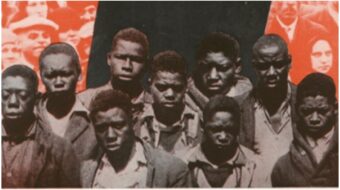The relationship between Black history and Marxist education is quite profound. Marx elaborated quite extensively on the connection between the slave trade and slavery to the primitive accumulation of capital.
Marxists provide the most credible explanations of why slavery re-emerged in history as an appendage of capitalism, the colonial and neo-colonial domination of Africa, as well as other areas of the world, and the factors which gave life and momentum to the struggles of the African-American masses.
Marxist analysis is also invaluable to understanding racism and giving class definition to not only the history but also the culture of the African-American people.
We could summarize that Marxist education has several goals. One is to explain how class struggle is the driving force of history. Another is to help interpret the lessons of history and our more immediate experience.
Also, Marxist education tries to give expression to working-class culture and lifeways. In addition, Marxist education has the goal of theoretically training leaders of struggle for a more democratic and just world.
For Marxist education, there is an intersection of being familiar with rigorous analysis on the one hand and the experience of struggle on the other. This intersection is most profound in the context of the African American example.
The early history of the United States provided the framework in which Marx could produce the historic analysis that labor in the white skin could never be free as long as labor in the Black skin was branded.
In the 1800s that analysis meant that wage labor could not be free until slave labor was destroyed. In the 1930s that analysis meant that labor, Black and white, had to be organized as one in industrial unions though segregation was the law of the land.
In the 1950s it meant Black-white unity in the fight to defeat segregation and the denial of the rights of citizens, civil rights, to the African-American people. The question looms: of what significance is this pivotal analysis today?
The challenge of the present moment is to advance class consciousness and class unity across lines of race, nationality and gender. But that, one could argue, is just the appearance of the quality of consciousness and unity that must be forged.
The system of capitalism inherently sows disunity between high and low wage and employed and unemployed workers. Marx was adamant in arguing that the decisive unity that was lacking but must be built was the unity between the employed and unemployed and high and low wage workers. No matter how high the wage, you are still a slave, Marx argued.
Today, what brands Black labor are low wages, job segregation and discrimination, and disproportionate underemployment and unemployment. Though 30 percent of Black people live below the poverty level, the reality of life for the overwhelming majority says that this possibility is only one pay check away.
Class consciousness, but even more so socialist consciousness, reveals that any section of labor can be reduced to the misery and poverty routinely experienced by Black and Brown labor.
The present state of crisis of steelworkers is an excellent example. Unity in struggle of all workers for a better quality of life for all workers (for health care, income benefits from job to job, educational opportunity, child care, low and moderate income housing, the advancement of democracy, etc.) is the only protection against the natural law-governed ravages that plague and threaten the whole of the working class under capitalism.
The only protection for the working class is to defend itself as a whole. Otherwise, the struggles of the class will be splintered and fractured. The key is to help the leading force of the working class reach higher levels of consciousness. Racism obscures this reality and severely retards the effort of the working class to fight for itself.
Marxist thinkers, Black and white, have shown that capitalism has wreaked havoc on the lives of people who are of the darker hue throughout the world. Capitalism has nothing to offer the Black masses in any part of the world.
The peoples of a darker hue have contributed much to world development, and it is Marxist scholarship which has worked along with others to make that truth known. It is for these reasons most emphatically, as well as others, that “we must plant red roses in the hearts of Black people” as stated by Olivia Santana, a Black female leader of the Brazilian Communist movement.












Comments